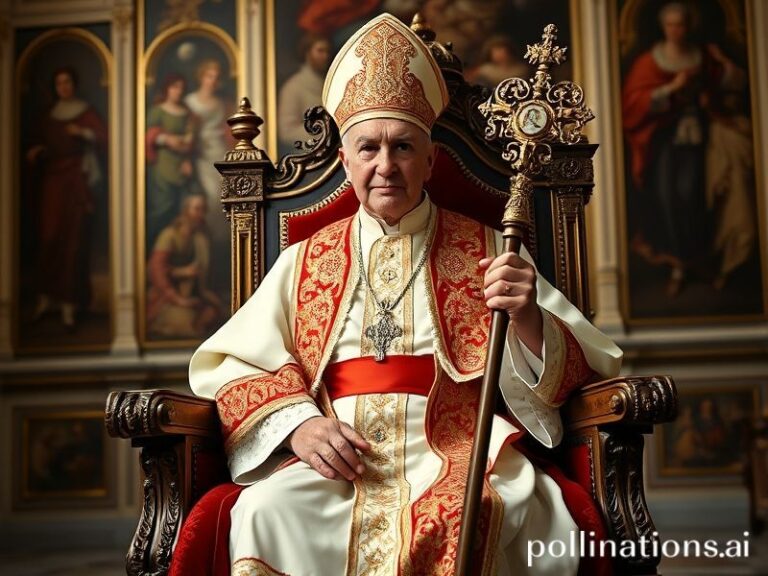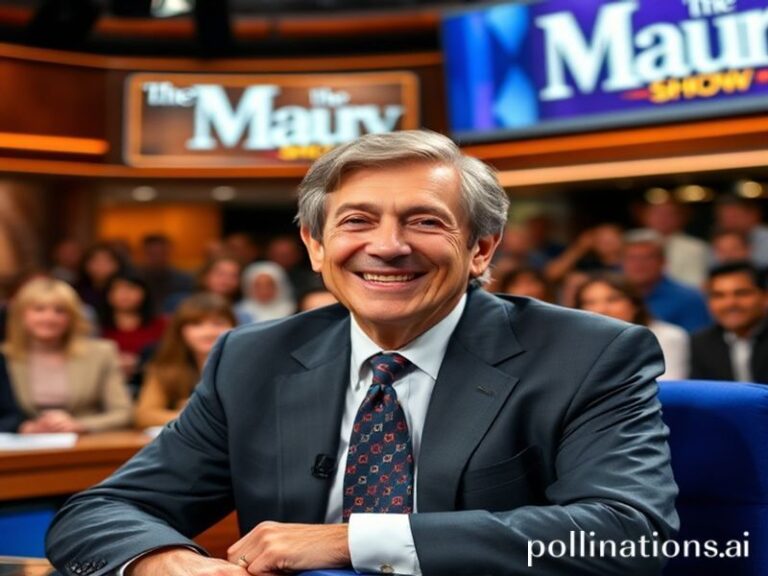Global Clemency: How Mercy Became the World’s Most Exclusive VIP Pass
Clemency: The World’s Most Selective Pardon Program, Brought to You by Whoever’s Still in Power
By the time you read this, some unlucky soul in a far-flung prison is probably discovering that mercy—like decent Wi-Fi—remains rationed by geography. From the marble-lined corridors of the U.S. Department of Justice to the gold-plated offices of Gulf monarchies, clemency is less a moral gesture than a geopolitical mood ring: it changes color depending on who’s watching, who’s paying, and who needs a quick burst of positive PR before the next election cycle.
Take the United States, where outgoing presidents traditionally empty the jails of their friends, donors, and the occasional war criminal while cameras flash like paparazzi at a celebrity funeral. Donald Trump dispensed pardons like party favors; Joe Biden, ever the cautious centrist, prefers to commute sentences in batches small enough to avoid upsetting the midterms. The message to the world is crystal-clear: justice is negotiable, but only if you have a Super PAC or a Netflix documentary.
Meanwhile, in Iran, clemency arrives wrapped in a prosecutor’s press release and timed to coincide with state holidays, so the Supreme Leader can appear benevolent without actually loosening his grip. Hundreds of protesters caught on shaky phone footage suddenly find themselves forgiven—right up until the next protest, when the cycle reboots like a sitcom rerun. The international community applauds the gesture, then quietly updates its travel advisories.
Across the Sahel, French-speaking presidents facing coups discover the miraculous power of last-minute pardons to placate angry colonels. In Sudan, generals who once ordered villages torched are offered amnesty if they simply agree to retire somewhere with decent golf courses. The African Union issues statements heavy on “reconciliation,” light on extradition, because nothing says closure like a villa in Dubai.
Not to be outdone, Europe practices what might be called boutique clemency. France grants symbolic pardons to aging Basque separatists so the Elysée can host a peace brunch. Germany releases RAF terrorists on compassionate grounds, provided they promise to write memoirs no one will read. The European Court of Human Rights applauds itself for progressive penal policy, then fines Turkey for holding journalists too cheaply.
Perhaps the most avant-garde interpretation comes from China, where clemency is algorithmic. The state commutes death sentences to life, life to 20 years, and 20 years to “re-education through labor,” all synchronized to the five-year plan. International observers call it Orwellian; Beijing calls it “socialist rule of law with Chinese characteristics,” which sounds like a cocktail you definitely shouldn’t order.
Of course, the true global superpower in clemency remains the Almighty Dollar. Multinationals caught laundering money for cartels settle for fines that look astronomical to normal humans yet qualify as rounding errors in quarterly reports. No one goes to jail; instead, they attend compliance workshops at luxury resorts where the towels are embroidered with the company logo. If that isn’t mercy, what is?
And then there are the UN special envoys, those indefatigable optimists who fly business class to conflict zones bearing offers of amnesty for warlords willing to sign ceasefires no one intends to keep. The paperwork is impeccable; the body count, less so. Still, the press conferences make excellent B-roll for donor appeals.
What unites these disparate performances is the quiet understanding that clemency is not about forgiveness; it’s about leverage. Leaders calculate the precise dosage of mercy required to pacify critics without emboldening the masses. The condemned remain props in a morality play where the script changes nightly, and the audience can only hope the next act spares them a starring role.
So, dear reader, if you ever find yourself on the wrong side of a riot shield, remember: salvation may arrive in the form of a press release, a campaign donor, or a monarch who just remembered it’s Eid. Until then, keep your passport updated and your lawyers on speed dial. Mercy, after all, is just diplomacy spelled backwards with a silent plea bargain.







